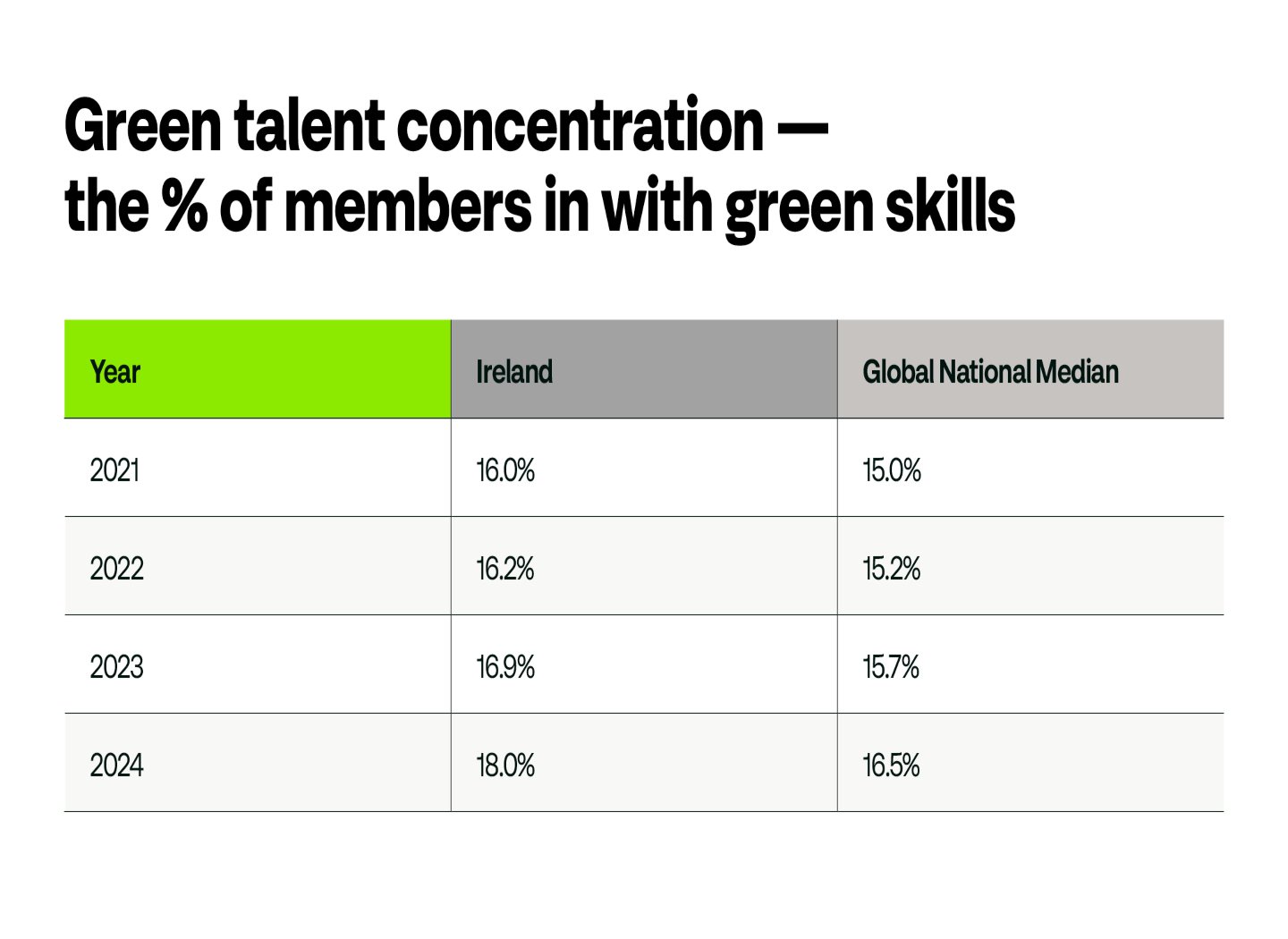Irish Demand for Green Skills Growing at Twice the Global Rate of Increase
Ireland is perfectly placed to take advantage of the need for Green Skills
The demand for green skills in Ireland is growing at twice the rate of the rest of the world – 11.9% Vs 6% between 2021 -2024 – with the YoY change in share of job postings on the LinkedIn platform last year requiring green skills increasing in Ireland by 22.1% compared to the Global increase of 11.6%.
These figures, that highlight Ireland’s opportunity in the green skills area, are contained in a recent LinkedIn report found that growth in demand for green skills is exceeding the increase in supply.
According to this report:
- By 2050, there will be twice as many jobs requiring green skills as people qualified to fill them and to close this gap there must be a doubling of the size of green talent by 2050.
- Global demand for green talent grew twice as quickly as supply between 2023 and 2024 with demand increasing by 11.6% and supply by 5.6%.
Embedding Ireland’s green goals into legislation
Green FDI
The Green Transitions Impact of Skills




 Green Talent Demand – Job Postings Requiring Green Skills
Green Talent Demand – Job Postings Requiring Green Skills YoY Change in share of job postings requiring green skills 2023 - 2024:
- Ireland: 22.1%
- Global: 11.6%
Compound Annual Growth Rate (CAGR) 2021 – 2024:
- Ireland: 11.9%
- Global: 6.0%

Leveraging Green Skills to advance Irelands Sustainability economy
In an era where climate change and environmental sustainability are at the forefront of global concerns, the need for green skills has never been more critical. Despite the positives from the LinkedIn numbers, Ireland cannot afford to be complacent around Green upskilling. Supply of such skills is lagging behind the obvious demand, and we must continue to try and reduce this difference.
This supply issue is also highlighted by Skillnet Ireland in its ‘Ireland Talent Landscape 2024’ report. This report was done by Skillnet to deepen its understanding of the challenges facing 500 businesses of all sizes, sectors, and regions in Ireland, across four strategically important areas for the Irish economy and supported by Skillnet Ireland; Digitalisation, Climate Action, SME Leadership and FDI Talent.
In the report it was found that:
- Two thirds (59%) of businesses state that their staff will require upskilling in climate action and sustainability for their future success.
- 69% of large businesses highlight the increasing importance of sustainable supply chain management’, and 41% of SMEs are planning to focus on developing circular economy skills.
- 49% of SMEs regard climate action and sustainability as a very important skills area in terms of growing their business. 70% of large businesses see green marketing and sustainable supply chain skills as key.
The transition to a green economy presents vast economic opportunities. Skilling people in green technologies and sustainable practices ensures that they are prepared to take advantage of these emerging job markets, fostering economic growth and stability.
Investing in green skills is not just an environmental imperative but also an economic and social one. By equipping individuals with the knowledge and abilities to support sustainable practices, we can create a workforce that is prepared to tackle the challenges of the future. Governments, educational institutions, and businesses must collaborate to integrate green skills into their training programs, ensuring that we build a sustainable and resilient society for generations to come.
